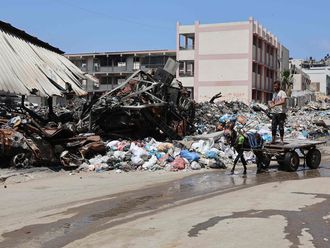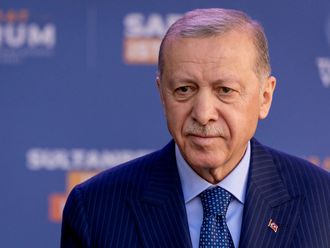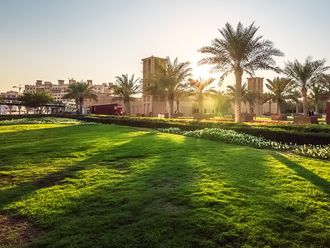Ain Eisa, Syria: A civil council expected to rule Raqqa once Daesh is dislodged from the Syrian city pardoned 83 of the terrorist group’s low-ranking militants on Saturday, a goodwill gesture designed to promote stability.
The US-backed Syrian Democratic Forces (SDF) have gained significant ground in the battle for Raqqa, the operational base for Daesh over the past three years and a symbol of its self-proclaimed ‘caliphate’.
Senior SDF figures predict Raqqa could fall within months.
That would be a severe blow to Daesh, which has plotted shooting and bomb attacks around the world from Raqqa, a city of about 300,000 before the militants seized it.
The 83 Daesh prisoners were transported to the headquarters of the Raqqa City Council in the village of Ain Eisa, north of Raqqa, in an amnesty coinciding with the Eid Al Fitr holiday marking the end of the Muslim fasting month of Ramadan.
One by one, they stepped down from buses, the youngest 14 years old.
Leila Mustafa, co-leader of the council, read out a speech as the militants, released because they had no blood on their hands and held no senior posts, stood silently in neat lines.
Sweets were handed out on trays in the sweltering heat, in what officials hoped would be the start of a new chapter in the men’s lives.
Speakers forecast a brighter future for Syria, which has been locked in a multi-sided civil war for six years involving regional powers and a US-led coalition whose air strikes put Daesh on the defensive.
“We would never release senior Daesh officials or anyone who has blood on their hands,” senior council member Omar Aloush said. “We are giving these men a second chance.” On the street outside the council, he told the Daesh members, some of whom had surrendered, that they would be integrated into society and given a chance to attend schools.
Speeches were followed by applause from all sides. The men walked past council members and shook their hands, before tasting freedom and reuniting with their families.
Several young Daesh members, like 17-year-old Kays Al Hadi, provided a simple explanation on why they joined Daesh.
“There were no opportunities before they arrived,” he said.
The amnesty may be one small step towards easing tensions that run deep in Raqqa after three years of ruthless Daesh occupation, followed by war.
Council officials acknowledge they face huge challenges in rebuilding a city with a traumatised population and devastated infrastructure.
Abdul Rahman Kalas, 43, worked in the Daesh department that imposed taxes on Raqqa citizens.
“I have seven children,” he said, as former militants walked away after the ceremony to face the uncertainty that hangs over Raqqa. “I had no choice but to cooperate. They paid me $115 a month.”












